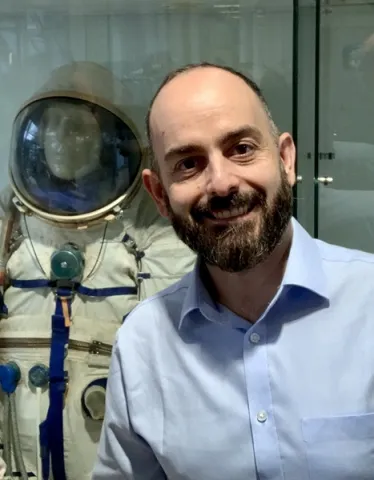About the project
This PhD will develop AI-based predictive and control methods for nonlinear, regolith-resilient mechanisms in collaboration with ESA, combining structural dynamics, compliant design, and topology optimisation to create lightweight, intelligent space structures for next-generation exploration.
Future space missions will rely on smart, lightweight structures capable of surviving extreme environments — from vibration and temperature swings to abrasive lunar dust and orbital debris. This PhD project will develop AI-augmented methods to predict, control, and enhance the performance of nonlinear mechanisms that enable such resilience in space applications. In collaboration with the European Space Agency (ESA), the research combines nonlinear dynamics, compliant mechanism design, and machine-learning-based prediction and control to create adaptive, efficient structures for the next generation of spacecraft and planetary systems.
You will investigate how data-driven tools can complement physics-based models to forecast complex dynamic responses, guide topology-optimised designs, and improve damping and stability under uncertain or changing conditions.
The scope of this project can be tailored to your background and interests, ranging from:
- structural design and topology optimisation
- nonlinear vibration and control systems
- orbital and dynamic interactions of moving components, to
- mechanical resilience and debris-impact modelling.
This flexibility ensures that you can pursue your preferred balance between analytical modelling, numerical simulation, and experimental validation.
You will have access to the University of Southampton’s state-of-the-art facilities for additive manufacturing, vibration testing, and computational analysis, and work alongside ESA engineers on real-world mission challenges.
You will receive advanced training in nonlinear dynamics, machine learning for engineering prediction, topology optimisation, and control of flexible systems. Hands-on experience will include numerical continuation, additive manufacturing, and vibration testing, with opportunities for collaboration and technical exchange with European Space Agency engineers.
The School of Engineering is committed to promoting equality, diversity inclusivity as demonstrated by our Athena SWAN award. We welcome all applicants regardless of their gender, ethnicity, disability, sexual orientation or age, and will give full consideration to applicants seeking flexible working patterns and those who have taken a career break. The University has a generous maternity policy, onsite childcare facilities, and offers a range of benefits to help ensure employees’ well-being and work-life balance. The University of Southampton is committed to sustainability and has been awarded the Platinum EcoAward.

